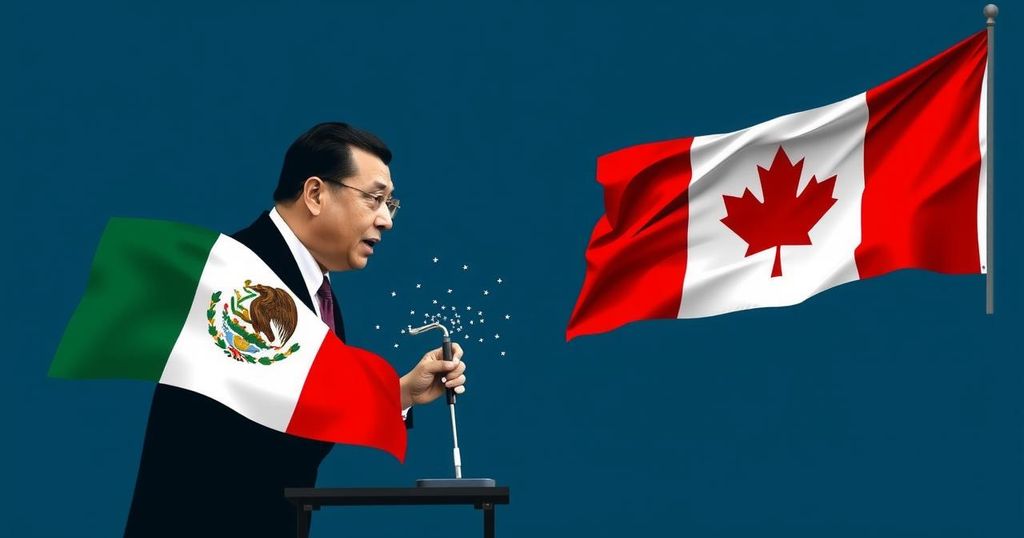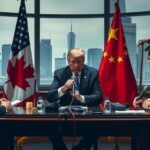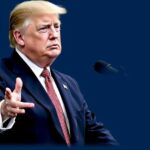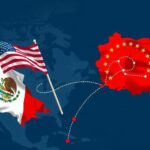Trump’s Proposed Tariffs Target China, Mexico, and Canada to Curb Drug Trade
Donald Trump plans to impose significant tariffs on China, Mexico, and Canada starting on his first day in office to combat drug trafficking and illegal immigration. He proposes a 25% tariff on goods from Mexico and Canada, and a 10% tariff on Chinese goods until fentanyl smuggling is curtailed. The effectiveness and implications of these tariffs remain to be seen in light of current economic conditions.
Upon assuming the presidency, Donald Trump has pledged to impose new tariffs on trade with China, Mexico, and Canada. On the first day of his administration, he plans to sign an executive order imposing a 25% tariff on all goods imported from Mexico and Canada. Additionally, he intends to establish a 10% tariff on Chinese imports unless the Chinese government takes action to curb the smuggling of fentanyl into the United States.
In a statement on his Truth Social platform, Trump emphasized that the tariffs on Mexico and Canada will remain as leverage until those nations take significant measures to combat drug trafficking and illegal immigration. He expressed frustration with both countries, insisting that they possess the capacity to resolve these ongoing issues, stating, “It is time for them to pay a very big price!”
During his presidential campaign, Trump proposed increasing tariffs on Chinese products to over 60%, significantly higher than those established during his previous term. Furthermore, he aims to revoke China’s most-favored-nation trading status with the United States. It is noteworthy that these tariff announcements emerge amid significant economic challenges faced by China, including a crisis in the property market and escalating local government debt.
As of now, the Chinese government has not officially responded to Trump’s tariff intentions, and the foreign ministries of Canada and Mexico have been contacted for their comments with no response as of yet.
The proposed tariffs come in the context of intensifying concerns over drug-related issues in the United States, particularly regarding the opioid crisis driven by fentanyl, a potent synthetic opioid. The Biden administration has urged China to intensify its efforts to inhibit the production and trafficking of fentanyl, which is a significant contributor to the rising mortality rates in the U.S. due to drug overdoses. Tariff usage has been a prominent tool in Trump’s trade policy, which he argues serves to protect American interests and address national security concerns regarding drugs and immigration.
In summary, Donald Trump’s commitment to introduce new tariffs on China, Mexico, and Canada underscores his administration’s aggressive stance on trade and drug trafficking. By leveraging tariffs as a potential bargaining tool, he aims to compel these countries to address crucial issues like fentanyl smuggling and illegal immigration. This initiative raises significant questions about the potential impact on international relations and economic stability for all parties involved.
Original Source: www.bbc.com








Post Comment